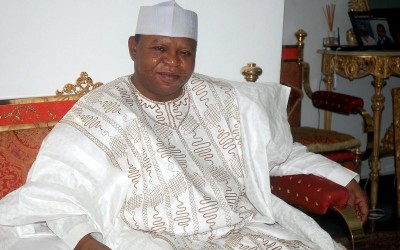 THE November 21 Kogi State governorship election was as good as won by the All Progressives Congress (APC) candidate Alhaji Abubakar Audu before news of his death filtered in. Even though the Returning Officer (RO), Prof Emmanuel Kucha, declared the election inconclusive, it was glaring that a clear cut winner had emerged in the late Audu. The results showed that the late Audu floored Governor Idris Wada by a margin of 41,353 votes.
THE November 21 Kogi State governorship election was as good as won by the All Progressives Congress (APC) candidate Alhaji Abubakar Audu before news of his death filtered in. Even though the Returning Officer (RO), Prof Emmanuel Kucha, declared the election inconclusive, it was glaring that a clear cut winner had emerged in the late Audu. The results showed that the late Audu floored Governor Idris Wada by a margin of 41,353 votes.
But, relying on the 2015 INEC Election Guidelines, Kucha declared the poll inconclusive because the outstanding votes of 49,953 were higher than the late Audu’s lead of 41,353. In such a case, he said, the candidate with the highest number of votes should not be declared or returned the winner. The appropriate thing to do is to declare the election inconclusive and hold a fresh election in the affected areas in due course.
The affected areas are the 91 polling units in 18 of the 21 local government areas of the state where election was either not held or cancelled. To win a governorship election, according to the 1999 Constitution, a candidate must (a) have the highest number of votes cast and (b) have not less than one-quarter of all votes cast in each of at least two-thirds of all local government areas in the state. The late Audu fulfilled these constitutional requirements as he won the highest number of votes – 240,867 – cast in the election to Wada’s 199,514. He also won in 16 of the 21 local governments.
Logic and commonsense demand that the late Audu should have been declared winner since there is no way Wada and his party can upset the apple cart in a supplementary election. The outgoing governor is trailing the late Audu by 41,353 votes, meaning that for him to turn the tide he has to clear all the 49,953 votes, which is an uphill task. Moreover, of the 49,953 voters, 25,000 are said to have permanent voter’s cards (PVCs). This means that only 25,000 people can vote in the supplementary election. If Wada is given all the 25,000 votes he will still not win. So, why a supplementary poll?
The problem is neither the Constitution nor the Electoral Act envisaged what befell the Kogi election – death of the leading candidate during the process. This is what Wada and the Peoples Democratic Party (PDP) are now capitalising on to create a problem where there is none. Irrespective of what the election guidelines say, it is as clear as daylight that APC, which fielded the late Audu in line with Section 221 of the Constitution, won the election. According to this provision, no association, other than a political party, shall canvass for votes for any candidate at any election…
The argument may be made that the 25,000 people with PVCs. will be disenfranchised if the election is not held, but their right to vote may be subsumed in the public interest because of the huge resources required to hold the election. PDP will not want to hear that, of course, and I am not even advocating that because I believe in universal suffrage. All I am saying is what is the need for the supplementary poll when it will not change anything at the end of the day? Is it just to satisfy PDP, which will cry wolf where there is none if the poll is not held? Is it to satisfy the law, which genuinely made that provision to suit the occasion when it arises? Does the Kogi scenario fit that bill? It does not.
But that is by the way. INEC has fixed the supplementary election for December 5. It has also asked APC to substitute the late Audu. To PDP, INEC is wrong to have made that allowance. Section 34 (1) of the Electoral Act 2006 allows parties to change their candidates 60 days before an election. As if the law envisaged the Kogi situation, it states in Section 34 (3): Except in the case of death, there shall be no substitution or replacement of any candidate whatsoever after the date referred to in subsection (1) of this section. It is unfortunate that Audu is no more to enjoy the fruit of his labour. If he had died after winning the election, his running mate, James Faleke, would have automatically become the governor-elect since they ran on a joint ticket.
As things stand now shouldn’t Faleke automatically step in as the party’s standard-bearer in the December 5 supplementary poll? Well, that is a party affair and the APC is at liberty to take any decision it deems fit in that regard.
NATION
END

Be the first to comment